Ayatollah Mesbah Yazdi, a religious authority and Iranian president Ahmadinejad’s spiritual mentor, implies in a theological-political book that Iran must acquire a nuclear weapon (“a special kind of weapon”): a rare expression of internal discourse about nuclear-related issues among the iranian elite.
Published: march 02, 2010; Intelligence and Terrorism Information Center.
Ayatollah Mohammad Taqi Mesbah Yazdi, a senior Iranian theological figure, extreme ultra-conservative and President Ahmadinejad’s spiritual mentor, wrote a book about theological-political theory. In the sections dealing with striving to achieve nuclear technology, he wrote that Iran must independently produce “the certain special kind of weapon” already in the hands of other countries. The book was published during the 2005 Iranian presidential elections won by Ahmadinejad.
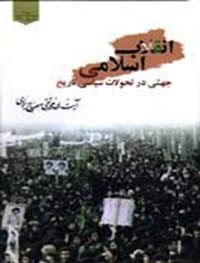
The front cover of the book by Ayatollah Mesbah Yazdi, The Islamic Revolution – Surges in Political Changes in History (issued by the Center for Publications of the Imam Khomeini Research Institute, 2005)
In our assessment, based on an analysis of Iranian internal discourse, Mesbah Yazdi referred in his book to the acquisition of nuclear arms. He emphasized divine, messianic support. Thus, he said, Iran should not to be deterred by the economic shortages liable to result from Iran’s exercising its right to manufacture the “weapon.”
The issue of developing nuclear weapons is occasionally debated in religious circles in Iran. In general, the official Iranian approach is that Islam forbids the development of nuclear weapons (as opposed to nuclear technology for “peaceful purposes”). Many Iranian sources even attribute a fatwa to Supreme Leader Ali Khamenei, issued in 1997 and forbidding the development and use of such weapons. They use it to prove Iran’s “purity of intent” regarding its nuclear issues. However, the fatwa has never appeared in print and it is unclear whether it actually exists, and in any event it is not reasonable to think it will constrain the regime, if and when it decides to develop and stockpile nuclear weapons.
Mesbah Yazdi’s message about Iran’s right to acquire “the special weapon” was directed at a relatively limited audience (only 3,000 copies of the book were printed and it was not widely publicized). However, in our assessment, it provides a rare glimpse into the internal discourse of the Iranian regime and its theological elite regarding the nuclear issue (as well as a hint and “a word to the wise”).
The book was published during the fervor of the presidential elections. Ahmadinejad won the elections, among other reasons, because of the support he received from people close to Mesbah Yazdi. That support brought him, in the second round of the elections, 70% of the votes in Qom, surpassing other districts.
The Issue of Developing Nuclear Arms in Religious Discourse in Iran
The development of nuclear weapons is occasionally the subject of religious discussion in Iran. Iranian sources claim that Islam forbids the development of such weapons, and there are those among them who boast that as early as 1997 Supreme Leader Ali Khamenei issued a fatwa forbidding the development and use of nuclear weapons.1 The fatwa has never appeared in print, and in our assessment, will not constrain the Iranian regime if and when it declares its intention to develop or stockpile nuclear weapons. However, it serves the regime’s spokesmen as proof of the “purity of intent” and “peaceful objectives” of its nuclear program.
However, occasionally Iran’s ultra-conservative clerics indirectly justify developing nuclear weapons. In February 2006 Mohsen Gharavian,2 one of Mesbah Yazdi’s students, was quoted by Western media and Internet sites affiliated with the oppositions (Rooz). He said that “at a time when the entire world has nuclear weapons, it is appropriate that during a confrontation with an equal factor (i.e., equal in military might), a nuclear weapon be used.” Note: The statement was not reported by any of the Iranian media.
Ultra-conservative Ayatollah Mesbah Yazdi wants to limit public participation in decision-making. He also want to institute a model of the Islam state in which the Supreme Leader has absolute authority, obviating the democratic elements of the Valiat faqih, the rule of the guardian jurist. He also holds messianic concepts which call for actions to be carried out leading to the advent of the 12th Imam or Hidden Mahdi, the redeemer of Islam. In June 2001 Ali Khamenei said that he had known Mesbah Yazdi for more than 40 years and considered him a philosopher, intellectual and expert in Islamic matters.
In June 2005, before the presidential elections, Mesbah Yazdi published a book called The Islamic Revolution – Surges in Political Changes in History. It surveys various types of regimes and denotes the one desirable according to Islam, a religious regime headed by the Veli-ye faqih, the guardian jurist. He also states that “the desirable regime for Allah is the regime of the Mahdi, the Hidden Imam, and the Islamic regime in Iran aspires to transform itself into that kind of regime and to prepare the ground for it.”
Some of the sections of the book deal with seeking to acquire technology, because, according to Mesbah Yazdi, Iran must acquire “a certain kind of special weapon.”
For example:
A. Enemies cannot be trusted, and Iran must independently produce very advanced weapons including “a certain special kind of weapon“: “We cannot know with certainty when the wolf-like elements in many countries which hold power will disappear and be wiped off the face of the earth, or when they will change their murderous ways. Therefore, we should not be indifferent to defensive policy and must strengthen our internal forces… Experience shows that such an (indifferent) attitude is incorrect and we must always strive to strengthen the country’s military and defense systems. We have to produce the most advanced weapon inside the country, even if our enemies don’t like it. There is no reason that they have the right to produce a certain special type of weapon, but that other countries not have that right.”
B. In seeking to acquire the (necessary) technology Iran must be patient and not be deterred by economic shortages: “Divine, messianic support has been the determining factor in the success of the Iranian regime during the various trying periods which have plagued it since its foundation… We cannot be broken because of temporary difficulties, they will pass, and Muslims must be patient and not be deterred by material or economic shortages, because if they do, it may lead them to be separated from (Islam).”
Conclusion
In our assessment, Mesbah Yazdi’s term “special weapons” refers to nuclear weapons. The assessment is also based on the terminology used by the Iranians in their internal discourse when referring to nuclear matters. It is also accepted by Iran experts and Farsi (the Persian language) scholars.
Only 3,000 copies of the first edition of Mesbah Yazdi’s book were printed (by a publisher in Qom) and most probably his readers were students at the college there and others who regard him as their spiritual mentor. Nevertheless, in our assessment, the book should at least be regarded as reflecting the general opinions of Iran’s theological elite, which influences the country’s decision makers (a hint and “a word to the wise”). It also provides a rare glimpse into the positions of the regime regarding some of sensitive issues, especially the nuclear issue.
Notes:
1 In September 2004 the Iranian broadcasting authority reported that Ali Khamenei issued a fatwa stating that the use of nuclear arms was contrary to and forbidden by Islamic religious law. Its existence has been mentioned by Iran’s nuclear negotiators, such as Hassan Rohani, secretary of Iran’s High Council for National Security and head nuclear negotiator at the time.
2 Hojjath al-Islam Mohsen Gharavian is a student of Ayatollah Mesbah Yazdi. He is a member of the science faculty of the Imam Khomeini Research Institute in Qom and lectures at the Science of Religious College, also in Qom. He announced his candidacy for the Assembly of Experts in 1998, but was not elected. In 2006 his candidacy was disqualified by the Guardian Council. He has expressed his preference for the term “Islamic Government” to “Islamic Republic.” That is because as he interprets Khomeini, the influence and electoral power of the people should be limited and the status of the ruling guardian jurist should be increased. He also preaches the use of violence against anti-conservatives.



 RSS
RSS


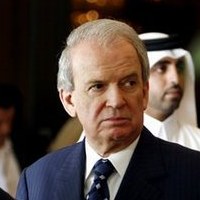
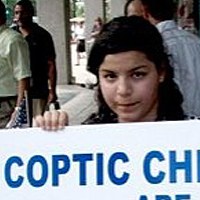
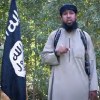
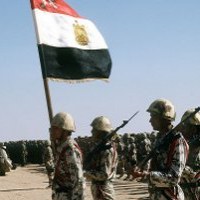
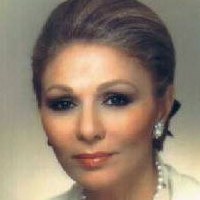




The Iranian Regime and its Theological Elite regarding the Nuclear Issue #iran #freeiran #shiism http://j.mp/avumXG
[…] The rest is here: The Iranian regime and its theological elite regarding the nuclear … […]
RT @CrethiPlethi: The Iranian Regime and its Theological Elite regarding the Nuclear Issue #iran #freeiran #shiism http://j.mp/avumXG
RT @CrethiPlethi: The Iranian Regime and its Theological Elite regarding the Nuclear Issue #iran #freeiran #shiism http://j.mp/avumXG